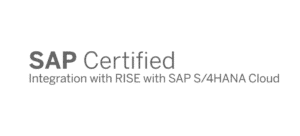LIMS Plastics Industry: Plastics and polymers must function perfectly and withstand the intended load. In plastics analysis, materials such as thermoplastics, thermosets, elastomers, composites, and foams are therefore intensively tested to determine whether they have the required properties. Analytical methods such as spectroscopy, elemental analysis, gas chromatography, liquid chromatography, thermal analysis, and many more are used. It goes without saying that the mass of analyses generates a huge amount of data that needs to be managed. A Laboratory Information Management System, LIMS for short, is a central database in which all analysis values can be stored and managed centrally.
The Laboratory Information Management System [FP]-LIMS is a modern and highly practical software solution for the collection, processing, management, and evaluation of all data generated in the laboratory. With the LIMS software, you can rely on a very practical, cost-effective, and proven option for centrally managing your laboratory data in plastics analysis. Our LIMS solution is especially known for its high flexibility. Many companies from a wide range of industries around the world have been relying on the high quality of our laboratory software, in some cases, for many years. Digitizing quality processes in the plastics industry has never been easier with [FP]-LIMS.
In the following, we would like to inform you about the most important functionalities of the LIMS plastics software and let you inspire by the advantages of the LIMS. Afterwards, you are welcome to arrange a free, half-hour LIMS software demo, during which we will be happy to give you an insight into the software and discuss your individual requirements.
Plastics Industry LIMS: FP-LIMS modules at a glance
– The right solution for every requirement –
Analysis Management
Professional management of analysis data and secure documentation – that’s what [FP]-LIMS Analysis Management offers you.
Inspection Order Management
The [FP]-LIMS inspection order management enables you to manage inspection orders for complex individual inspections professionally.
Recipe Management
Safeguard your largest company asset in a secure database.
ICP Module
The [FP]-LIMS ICP module enables measurement data from ICP devices to be professionally processed and evaluated.
Input dialogue
With the [FP]-LIMS input dialogue, you can enter manual measurement data more easily and thus simplify your everyday work.
ERP Module
Integrate the LIMS easily into the quality management process with the ERP module.
Browser Interface
Easily make relevant lab information available to other stakeholders within the organization.
Workflow Management System
Control laboratory-related business processes such as approvals or complaints processes centrally with the [FP]-LIMS Workflow Management System.
Electronic laboratory notebook (ELN)
The [FP]-LIMS electronic laboratory notebook (ELN) enables lab staff to manage inspection orders and tasks from their mobile devices, eliminating the need to depend on desktop PCs for access.
Advantages of LIMS for the plastics industry
Proven LIMS for the plastics industry
[FP]-LIMS is already successfully used in numerous laboratories in the plastics industry worldwide. Our customers report simplified workflows and other effects.
Adaptable and flexible
Our [FP]-LIMS adapts to your individual requirements. So you simply individualize individual fields or functionalities completely yourself.
Cost effective & efficient
Plastics companies worldwide benefit from our [FP] LIMS as a low-cost, effective way to centrally manage their laboratory data.
For every measurement device
Our [FP]-LIMS offers numerous interfaces, e.g. to instruments from Bruker, Elementar, Hitachi, Thermo Fisher, Zwick, Spectro Ametek.
Price-performance ratio
The entry-level version [FP]-LIMS Light costs only $3,600. Depending on the degree of requirement, we offer further powerful versions.
Practical LIMS solution
[FP]-LIMS is a very practical LIMS solution. Find out about the advantages and book a LIMS software demo.
5 reasons for FP-LIMS
Why Excel does not replace laboratory software
With the help of 10 reasons, we will explain why you should not permanently rely on Excel as laboratory software.
<< Get your whitepaper here >>
Handout "LIMS selection criteria"
![[FP]-LIMS Software](https://fp-lims.com/wp-content/uploads/2020/06/Fink-Partner-LIMS-Software-Firmen-Logo-e1592470427959-300x250.png)




